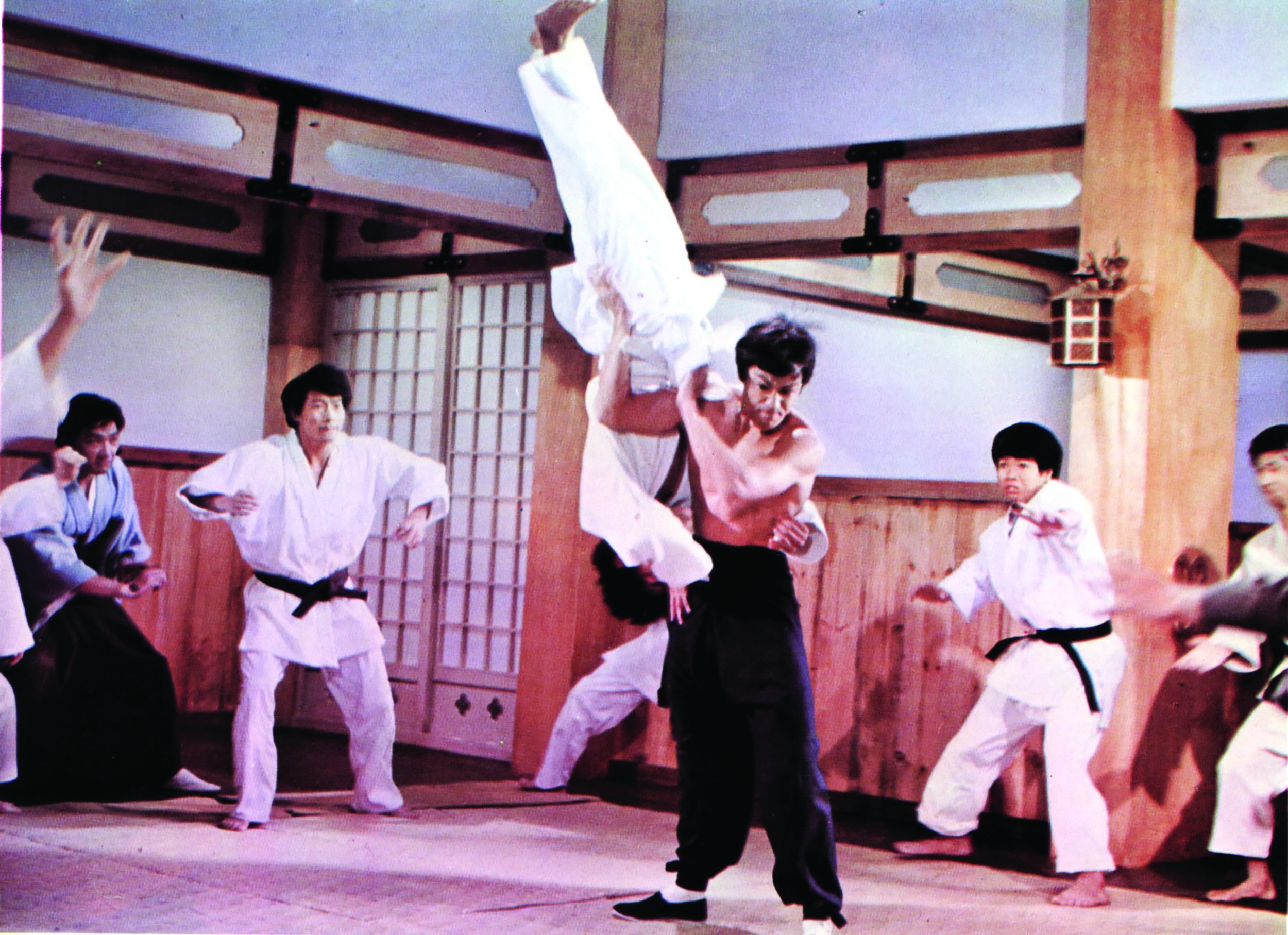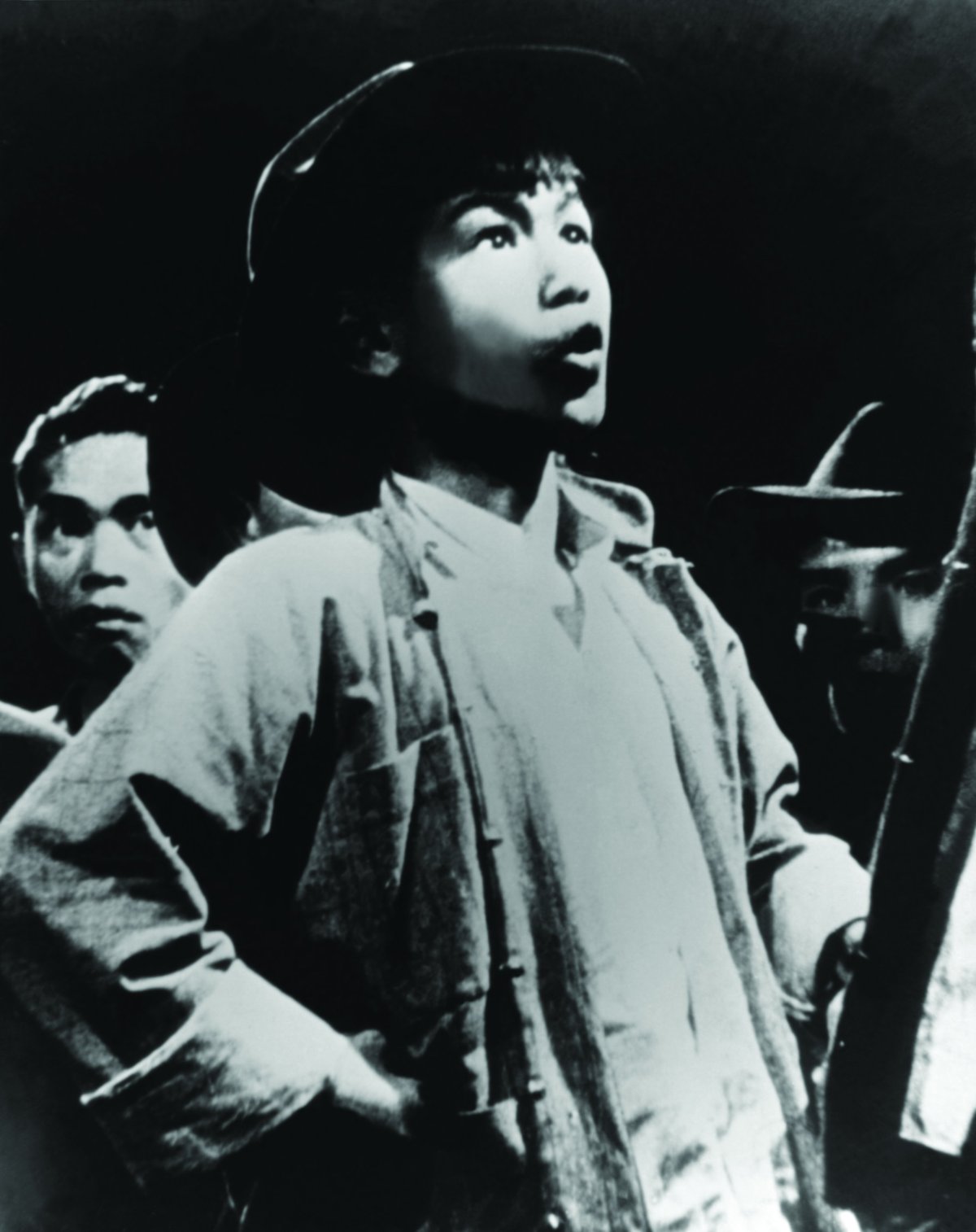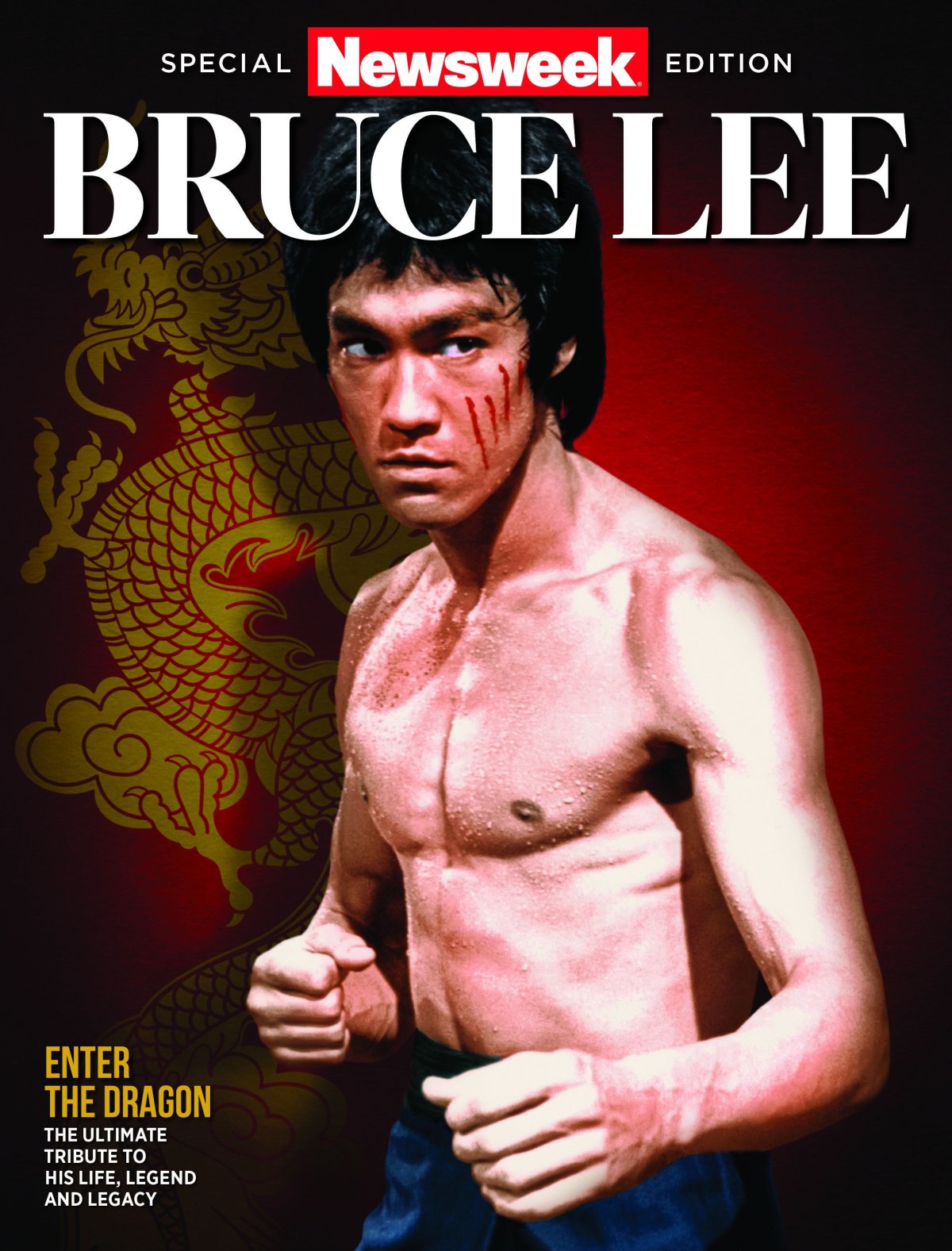
This article, along with others on the magnificent life and iconic career of actor and martial arts master Bruce Lee, is featured in Newsweek's Special Edition: Bruce Lee.
Before he ever threw his first punch or screamed a martial cry, Bruce Lee had already found success in the film industry. The son of a Cantonese opera performer, the future legend came into this world with acting in his blood, and he quickly found an arena for his charisma in the movies being made in Hong Kong during the late 1940s and '50s.
"Many artists working in Cantonese opera also found work in the film industry, so Bruce Lee's father was able to get his son work in some of those movies," says Dr. Lauren Steimer, assistant professor of media arts at the University of South Carolina.
While possessing a vitality of its own, the backlots of Hong Kong films weren't quite the bright lights of Hollywood. In the 1930s, the big Chinese film studios located in Shanghai started setting up shop in Hong Kong as the political situation in the mainland deteriorated. As the decade wore on and the armies of Imperial Japan marched through mainland China and Hong Kong, the film industry in the island city responded by churning out a mixture of pro-Japanese propaganda and mystical martial arts movies. After Japan surrendered Hong Kong back to British control, filmmakers kept making fantastical stories that took place in ancient China, delighting audiences at home and abroad.

"They continued to make films that would be successful first in their primary market and successful to Chinese living overseas in Southeast Asia," Steimer says. Many of these movies earned the dubious honor of being called "seven-day wonders," in reference to how long it took to shoot them from start to finish.
Bruce made his film debut in 1941 as a 3-month-old infant in the film Golden Gate Girl, filmed in San Francisco and screened in Asia around 1946. After the Lee family's return to Hong Kong, Bruce appeared on-screen a few more times before making a stronger impression in the movies made by the Union Film Enterprises.
"Union Film came about when Cantonese opera performers and stars decided not to make martial arts pictures," Steimer says. "Their films focused on social problems and family melodramas, so it's a very different cinema than what we think of Bruce Lee starring in." Some of Bruce's highlights from this period include his role in An Orphan's Tragedy (1955), a loose adaptation of Charles Dicken's novel Great Expectations, and In the Face of Demolition (1953), a film centered on the post-war housing crisis plaguing Hong Kong. And while these heavy subjects didn't give the young Bruce a chance to display any fists of fury or lightning-quick kicks, he nonetheless knocked out audiences and critics alike with his performances.
"There were some great reviews, and people thought he was very talented even as a young man," Steimer says.
It was just a hint of things to come as, decades later, Bruce would use his matured abilities to take the movie industry—and the world—by storm.
This article written by Senior Editor James Ellis was excerpted from Newsweek Special Edition: Bruce Lee. For more on the life and legacy of the timeless legend pick up a copy today.

Uncommon Knowledge
Newsweek is committed to challenging conventional wisdom and finding connections in the search for common ground.
Newsweek is committed to challenging conventional wisdom and finding connections in the search for common ground.
About the writer
To read how Newsweek uses AI as a newsroom tool, Click here.








